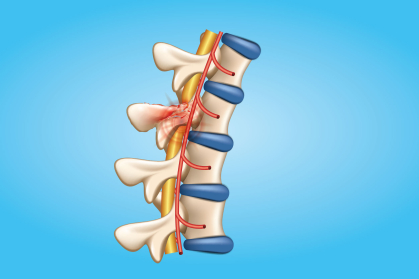A Breakthrough in Spinal Cord Injuries

By using artificial intelligence and robotics to make therapeutic proteins, a team led by Rutgers researchers has successfully stabilized an enzyme that can degrade scar tissue resulting from spinal cord injuries and promote tissue regeneration. The study, appearing in Advanced Healthcare Materials, reveals the team’s groundbreaking process for stabilizing the enzyme Chondroitinase ABC (ChABC), offering new hope for patients with spinal cord injuries. “This study represents one of the first times artificial intelligence and robotics have been used to formulate highly sensitive therapeutic proteins and extend their activity by such a large amount,” says Adam Gormley, the project’s principal investigator and an assistant professor of biomedical engineering at the School of Engineering. “It’s a major scientific achievement.”